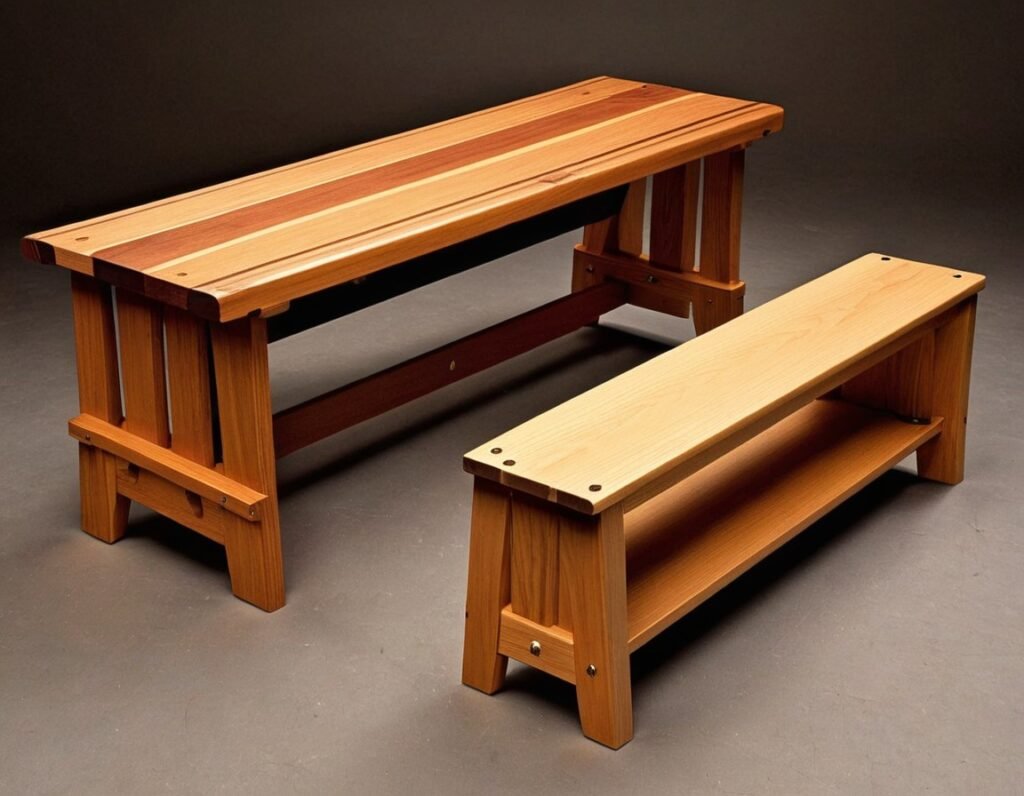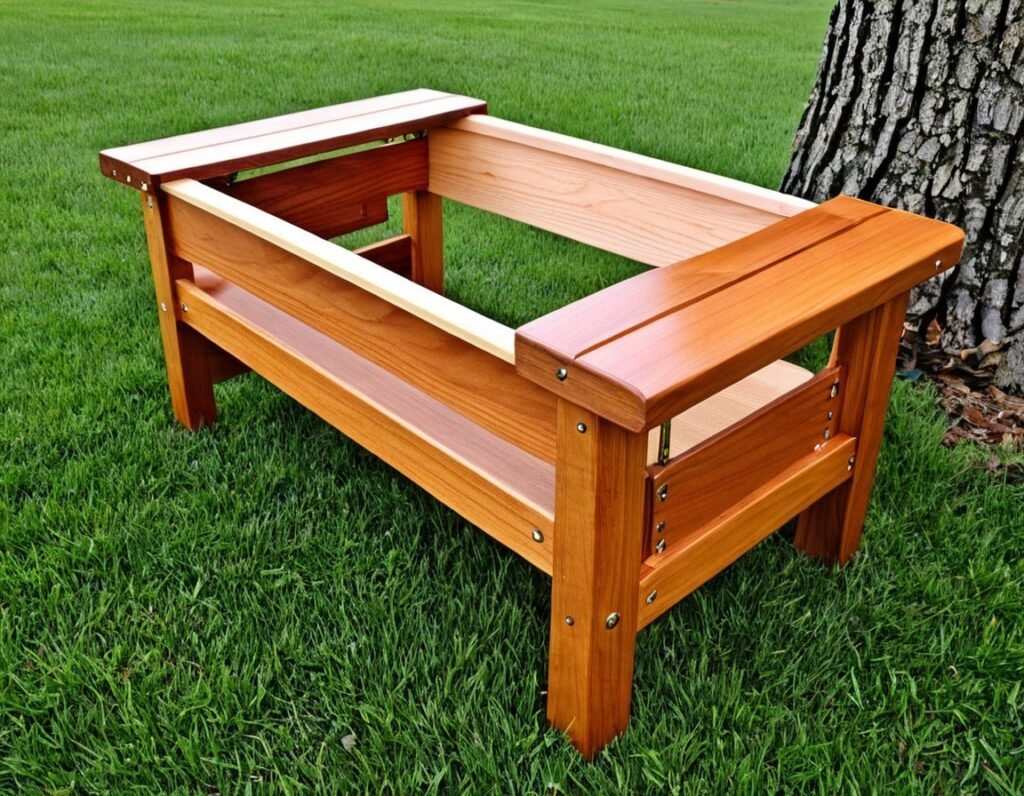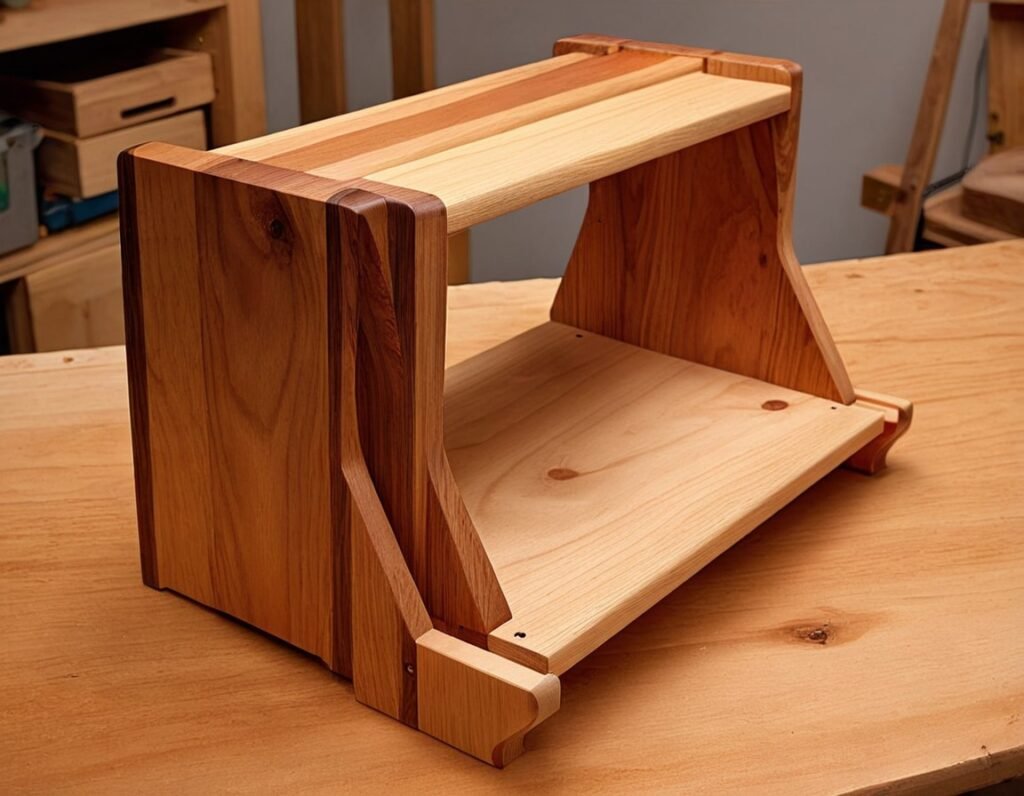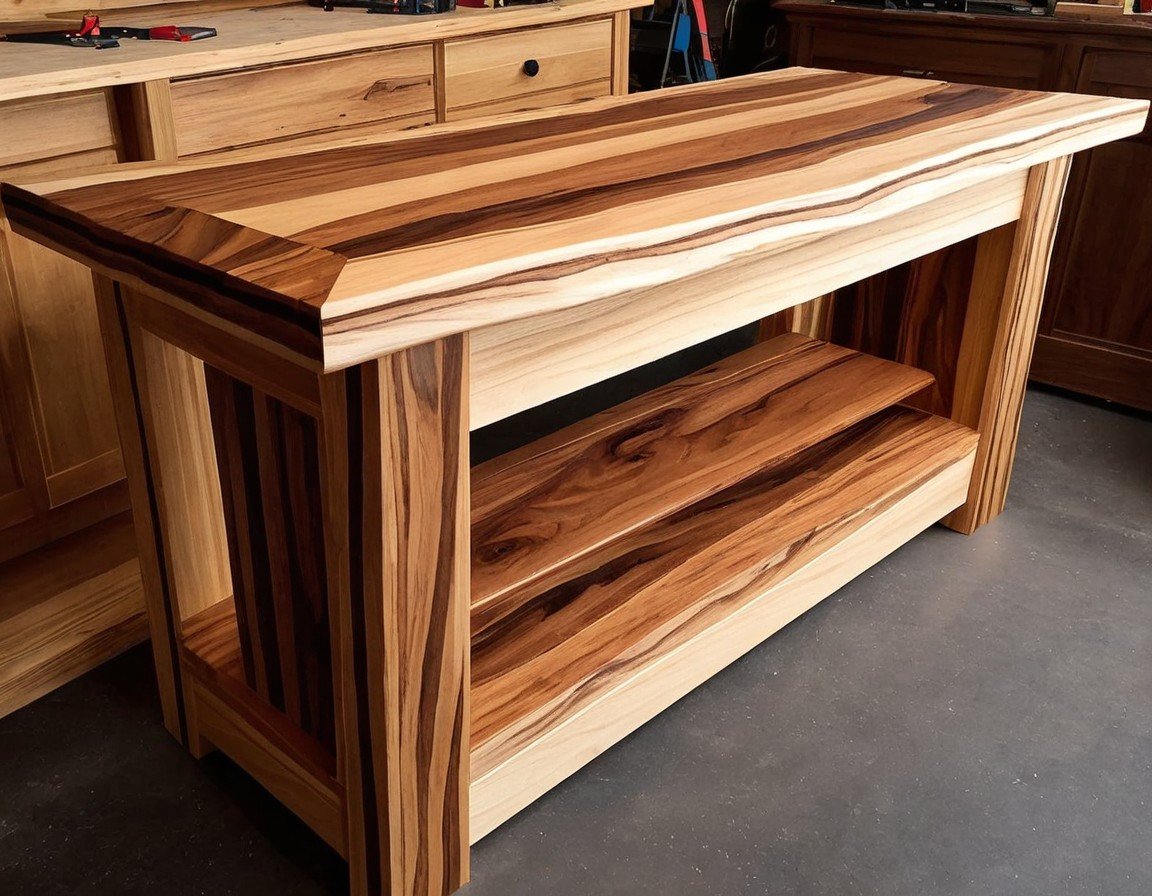Free Woodworking Guide Inside – Click to Download!

Woodworking is timeless. It brings creativity and precision to the attachment of something real, tangible, created by your hands. Whether you’re a beginning woodworker or an experienced professional, small woodworking projects offer a convenient and satisfying means of stretching your skills while creating useful products and trying out new techniques. These projects don’t require a large workshop or an extensive collection of tools, so they are perfect for the beginning woodworker. Small projects fit the bill when a person wants to get their feet wet in the craft without making a huge investment in space or tools. This full guide will try to communicate everything you need to know concerning small woodworking projects: their benefits, popular ideas, tools that are necessary, and tips for making sure of success. Small woodworking projects bring enjoyment when making something with your hands. Therefore, whether it is a gift, improvement in home decor, or personal satisfaction, they highly pay back.
Why Small Woodworking Projects?
Small woodworking projects are more than an introduction to the real world of woodworking; they are an entry point to your eventual creative growth. As previously mentioned, there come a number of associated benefits with small woodworking projects. Currently, they make just an excellent option for any woodworker, regardless of experience. Whether you’re short on space, time, or equipment, small projects present a fulfilling and very manageable way to scratch this itch .
Benefits of Small Woodworking Projects:
Space Efficiency: The most prominent benefit associated with small woodworking projects is that these can easily be made even in minimum space. You need not really have a workshop; a corner in your garage or basement, or even some space in your living room, would suffice to get the job completed. This, therefore, accommodates many apartment dwellers, small homeowners, and shared-space dwellers. With these limited spaces, you will be able to carve out beautiful and workable pieces without them feeling space-congested.

Fast Completion: It’s nice to know that, if one is extremely busy, a project can be done fast. In fact, most small woodworking projects can easily be done in just a few hours or over the weekend. Quick completion time means instant satisfaction since you get to see right about what you are getting from the work put in. Whether you’re looking to unwind after a long day or fill a weekend with creativity, small projects offer the perfect opportunity to create something tangible in a short period.
Skill Development: All projects in woodworking tend to be learning experiences, but skill development is most facilitated by small projects when one has to get to grips with and perfect his or her craft. With such projects, you get to rehearse the basics of measuring, cutting, sanding, joining, and finishing. There will be little pressure, as the commitments, when you work out the possible loss, are small; you will also be making mistakes that will later be useful in enhancing your understanding and skill. From a good foundation of skill and confidence, you can progress to more complex projects and challenges.
Very Flexible Customization: Small woodworking projects are easy to customize. Whether it’s matching home decor, creating that special gift, or working with various woods and finishes, these projects provide a perfect canvas for your creativity. Being able to customize also means you’ll be able to tailor projects to specific needs, like designing a bookshelf to fit a particular nook or turning a log into a set of coasters with your family’s initials.
Cost-Effective: On the whole, small woodworking projects require fewer materials, thus enabling you to enjoy woodworking on a shoestring budget. With little wood and few supplies required, you should be able to complete a project inexpensively if you have not been prepared to invest heavily in materials or tools. The relatively low cost makes it easier to try different types of woods or finishes and hence brings variety into your experience without breaking the bank.
Free Woodworking Guide Inside – Click to Download!
Popular Woodworking Small Projects
The options when choosing a project are virtually limitless. Small woodworking projects can run the spectrum from practical items around the house to decorator items, and each poses unique problems and rewards. Following are some of the most popular small woodworking projects that should appeal to many tastes and skill levels, providing functionality and visual appeal:

Wooden Coasters: Simple to fabricate, sleek, and ultra-configurable, wooden drink coasters get a good use out of odds and ends of wood really well, and serve as a brilliant space for experimenting with different designs. You can do them in squares, circles, hexagons, and even put in a personalized quotation, engraved, painted, or stained on it. Coasters are primarily functional, but they also make great gifts, lending a handmade touch to any coffee table.
Picture Frames: A classical woodworking project to hone precision and creativity as a woodworker, picture frames can be done in any size for photos or pieces of art and further customized using various woods, finishes, and decorative details. Handmade wooden frames seem to add character and warmth to your home with their framing of family photos, pieces of art, and personal accessories.
Inlaid Shelves: Functional and decorative, they may be used to display books or plants, or simply for decoration. Customizable to any space, be it a narrow shelf in the bathroom or a floating shelf in your living room, this project teaches a range of mounting techniques and design styles, making it practical but rewarding.
Wood Jewelry Boxes: Whether you like it in its plain form or as complex as you wish, the wooden jewelry box will be timeless and treasured for years to come. You can create a base style box with a hinged lid or one with compartments and drawers, velvet lined, and much more complex. Jewelry boxes are great personalized gifts and a great way to show off your craftsmanship.
Candle Holders: Wooden candle holders mantel a rustic, handmade charm to any room. They are also able to be constructed in many different styles, from minimalist tea light holders to ornate pillar candle stands. It’s an excellent project for testing different woods and finishes, as well as drilling and turning techniques.
Plant Stands: Bring out your green with this custom, handmade wooden plant stand, where you can display your plants in a single-pot or multi-pot carrier. You’ll be able to adjust the height and width according to the space available. These plant stands will be nice small joinery exercises, adding a little touch of nature in the home.
Phone Stands: An easy and functional project, these wooden phone stands will help you keep your phone close and upright on your desk or bedside. It is a small project that can be completed quickly, and it can be modified to different angles, grooves, and finishes to tailor it to your needs.
Bookends: Simple yet effective, these wooden bookends are very good at keeping your books in line while giving a touch of personal flair to your shelves. In this project, you could do many shapes and sizes with just scraps of wood or other re-purposed material. It’s also a cool way to tinker with design while really making something useful.
Serving Trays: Whether you use them to serve guests or simply as a decorative piece on your coffee table, wooden serving trays are both versatile and stylish. Handles, inlays, or even carvings can make each one special. Serving trays are also an excellent project to practice your finishing techniques, for they must have a smooth, durable surface.
Key Holders: Organize your keys right near the door with a custom wooden key holder. You can easily add hooks, little shelves, or even a piece of chalkboard to make it functional. Key holders are quite useful, very practical, and come in handy at any home interior. They are also an excellent place for practicing the basics of woodworking.
Free Woodworking Guide Inside – Click to Download!
Basic Tools Required for Small Woodwork Projects
Although the tools for small woodworking projects are not too many, a few items will facilitate processes and make work easier on wood. These tools are easy to use, versatile, and important in delivering professional results:
Cordless Drill: Perhaps one of the most versatile woodworking tools in making holes and driving screws on smaller projects, this is the one. It’s cordless, meaning one is free to work around without being tied to a power socket, making this machine as useful as it can be when doing inside and outside work. A good quality cordless drill will have variable speeds and a comfortable grip so you can easily accomplish any job with confidence.
Palm Router: Perfect for adding decorative edges, carving designs, and making very precise cuts, it packs in accuracy for fine detail work. A must for the woodworker to make a personal statement in his work. From carving intricate patterns to smoothing sharp edges and hollowing out wooden sections, you can do much more with a palm router.
Pocket Hole Jig: This pocket hole jig will help to make easily hidden joints that are strong. This tool is right when assembling small items like shelves, boxes, and picture frames. It ensures that the joints are strong and nice-looking. A pocket hole jig guides you in joining pieces of wood simply, thereby making your projects sturdier and professional-looking.
Finishing Sander: A finishing sander is a tool that you can’t do without, as it will produce the smooth professional finishes you need for your projects. It removes those rough edges and any imperfections, leaving your workpiece ready for staining, painting, or sealing. A good finishing sander should provide an even sanding surface and be controlled very easily in order to achieve a perfect finish on every project.
Bar Clamps: While assembling, it is vital to secure the workpieces; this is the key to safety and precision. Bar clamps hold a mighty holding power that holds everything in place as you cut, sand, or assemble the pieces. They firmly hold your joints and pieces together, keeping them in place throughout your work, which guarantees a good job every time.
Follow these tips that will help to ensure a smooth process and a satisfying result for your small woodworking projects.
Plan First: Before you start, make sure you have all that you need to complete the job. Draw out a rough draft of your project and ensure proper measurements. If you plan ahead, then you will save precious time and fewer chances of making mistakes. This may entail making a step-by-step plan with a checklist of materials and tools.
Start Simple: If you are starting woodworking, start with some simple projects. You can progress to more advanced builds as your techniques get polished. It is advisable to start small and work through skill-building in this manner. Otherwise, the outcome might be overwhelming. Finishing simpler projects will enhance your confidence and make you want to do more.
Be Precise: Small projects require more attention to detail. Take your time, double-check every cut to ensure squareness, glue joints well, and check all your measurements throughout the project. Precision is the key to getting that professional look in smaller projects where mistakes show more. Measure twice and cut once; think ahead and always work with care.
Sand It and Finish: Do not be satisfied until you have sanded and finished the work. Any job, well-finished and smooth, will look better and last longer than one that has been hastily thrown together. Time invested in the finishing process pays off with a better looking and more durable end product. If you’re going to stain, paint, or use a clear finish, plan on sanding between coats and allowing each layer to dry thoroughly.
Get the Best Material: The small projects will come out pretty durable and decent looking if you apply superior quality wood. As a matter of fact, quality materials make your work look better and give assurance that it will last a long while. In choosing wood, ponder over the gain, hardness, and appropriateness for the job. The right material can give you dramatically different results in the finished product.
Free Woodworking Guide Inside – Click to Download!
Where to Find Inspiration
Want more small woodworking projects yet? The resources below are full to overflowing with ideas on designs and techniques about how to further personalize your pieces:
Online Platforms:
Pinterest is a haven for woodworking ideas. You can find projects here for any skill level, from beginner to expert build. But what you can also find here is design inspiration, finishing techniques, and even step-by-step instructions. You can create boards where you save all your ideas so that you may organize your project inspirations.
YouTube—From step-by-step tutorials to helpful tips for the more experienced woodworker, this shall guide you to learn new techniques and become more skilled at what you’re doing. It could be fast-paced views of a project or highly detailed instructional videos; it’s all there. Woodworking channels almost always provide detailed plans and information, thus making some rather complicated projects much easier to do.
On Woodworking Blogs: With hoards of woodworkers sharing their projects, plans, and tips online, referencing woodworking blogs becomes a valuable source for details of a project plan, tool reviews, and insight on various woodworking techniques likely to be adopted. Because bloggers often share personal experiences of what worked or did not work for them, this transmits practical experience and some very good advice, all aimed at helping you avoid the costly mistakes of others.
“The Complete Manual of Woodworking” by Albert Jackson: This will be your guru—from small project ideas down to techniques from simple basic to highly advanced methods. It’s a go-to reference for understanding the basics and learning new techniques in woodworking.
“Fine Woodworking” Magazine: Source of project ideas, tool reviews, and techniques for all levels woodworkers. Not only will the magazine inspire you, but you will also learn from it, with the latest trends and best practices in the field of woodworking. You will be equipped with detailed project plans, expert advice, and reviews of tools and materials—all you will need as a serious woodworker.
Conclusion:
It’s excellent to work on small woodworking projects to increase skills, make something beautiful, and get the satisfaction of completing a project. Probably you are making it for your house or as a gift; maybe the possibilities are endless. With the right tools, some planning, and attention to detail, you will be surprised at how gorgeous pieces you can create and be proud of. Small projects are good for exploring creativity while honing and churning out high-quality results without needing a big workshop with many tools involved. This balance between challenge and reward is the right way to build skills and exercise new ideas, giving enjoyment from woodworking on a scale that is manageable. So, crank up your tools and get on with your next small woodworking project right now. Whether it is an easy wooden coaster or an intrinsically detailed jewelry box, each project offers learning and growing and creates something of great value.

